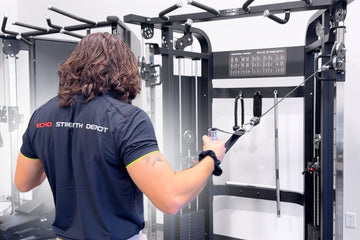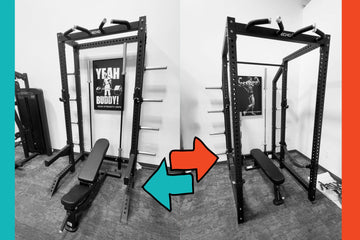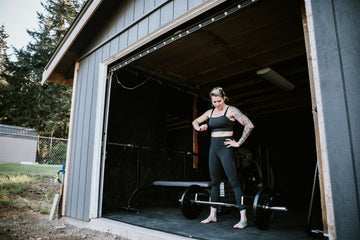If you’ve been training consistently but aren’t seeing much progress, chances are you’ve hit a plateau. The fix? Progressive overload. It’s the single most important principle in strength training, and if you’re not using it, you’re leaving gains on the table.
What is Progressive Overload?
Progressive overload means gradually increasing the stress placed on your muscles over time. Your body adapts to the demands you put on it, so if you keep lifting the same weight, doing the same reps, and following the same routine, your muscles stop growing.
To keep progressing, you need to push your muscles a little further than last time.
Ways to Apply Progressive Overload
There’s more than one way to make progress. Here are a few simple methods:
-
Increase the Weight
Add 2.5–10 lbs to your lifts once you can complete your sets with good form. This is where some solid, durable equipment from Echo Strength comes in handy—you’ll want something that can handle consistent progression. -
Add More Reps
If you hit 3 sets of 8 comfortably, try pushing for 3 sets of 10 before increasing weight. -
Add More Sets
Doing an extra set can increase training volume without drastically changing your routine. -
Slow Down the Tempo
Control the eccentric (lowering) portion of the lift. Slowing it down increases time under tension and muscle growth. -
Improve Range of Motion
Go deeper in your squats, increase stretch on dumbbell flys, or extend pull-ups fully—better form leads to better gains.
Common Mistakes with Progressive Overload
-
Adding weight too fast: Jumping 20 lbs instead of 5 can lead to poor form and injury.
-
Ignoring recovery: If you’re constantly pushing without rest, you’ll burn out. Sleep, nutrition, and recovery tools matter just as much as the lifts.
-
Not tracking progress: If you’re not logging your workouts, you won’t know if you’re actually progressing.
How to Track Your Progress
A training log is one of the most underrated tools in the gym. Write down weights, reps, and sets after each session. Over time, you’ll see trends and know when it’s time to level up.
Pair that with reliable equipment—barbells, dumbbells, and hex bars from Echo Strength—and you’ll have everything you need to keep moving forward.
Final Thoughts: Small Steps Add Up
Progressive overload doesn’t mean adding a ton of weight every week. It’s about small, steady improvements over time. Even a little progress compounds into massive results when you stay consistent.
So next time you’re in the gym, ask yourself: Am I doing a little more than I did last time? If the answer is yes, you’re on the right track.






